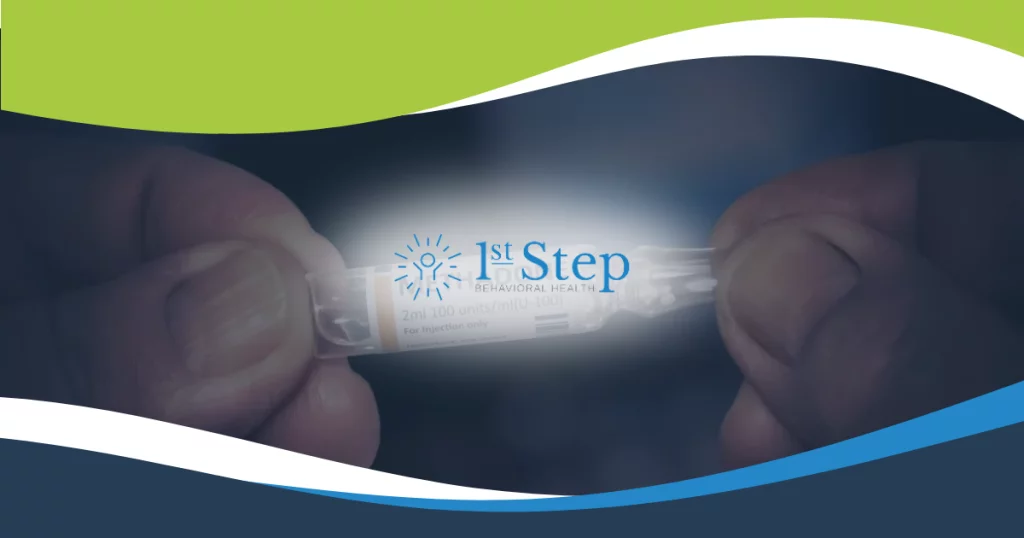What You Need to Know About Methadone and Testosterone
Methadone has been a part of opioid detox protocols for many years. It has also been used as a harm-reduction measure in Medication Assisted Treatment programs since the 1960s when the heroin epidemic really began to take hold in American cities.
While methadone has been helpful in many ways, it isn’t without side effects, and the interplay between methadone and testosterone has been a matter of concern for some time. For those who struggle with opioid addiction, medication-assisted treatment (MAT) can be a crucial tool for overcoming it.
Methadone is one of the most commonly used drugs in MAT, both for its effectiveness in reducing withdrawal symptoms and for its use in harm-reduction measures. However, some concerns have been raised about the impact of methadone on testosterone levels.
In this blog post, 1st Step Behavioral Health explores the relationship between methadone and testosterone and helps you understand the pros and cons of methadone maintenance, and we suggest some alternatives.
What is Methadone? Why is it Used?
Methadone has been used for decades as a treatment for opioid addiction. Its effectiveness in reducing withdrawal symptoms is well-established, and it has also been used as a harm-reduction measure to prevent the spread of infectious diseases through sharing needles.
Methadone is a long-acting opioid agonist that works by binding to the same receptors in the brain as heroin and other opioids. Doing so, it reduces cravings and withdrawal symptoms, which can help people maintain treatment and avoid relapse.
What’s The Connection Between Methadone and Testosterone?
However, some studies have raised concerns about methadone and testosterone, suggesting that methadone may suppress testosterone levels in some men. Testosterone is a hormone that is responsible for, among other things, the development of male sex organs, the production of sperm, and the maintenance of muscle mass and bone density.
Some studies have linked low testosterone levels to depression, fatigue, and diminished libido. So, it’s understandable that men who are prescribed methadone as part of their recovery may have concerns about the impact of the medication on their testosterone levels.
Is Methadone Maintenance The Right Choice for You?
Despite these concerns, there are several reasons why methadone maintenance may still be a good option for many people struggling with opioid addiction. For one thing, methadone has been shown to be effective in reducing cravings and preventing relapse.
Additionally, the harm-reduction benefits of methadone are significant, as they can help prevent the spread of infectious diseases, such as HIV and hepatitis C, through the sharing of needles.
For those who are concerned about the impact of methadone on testosterone levels, there are other medications that may be used in MAT that do not have the same impact.
Buprenorphine (Suboxone) as an Alternative to Methadone
Buprenorphine is a partial opioid agonist that also works to reduce cravings and withdrawal symptoms. Unlike methadone, however, it does not require daily visits to a clinic, and it may have less of an impact on testosterone levels than methadone.
While it’s essential to consider the potential impact of methadone on testosterone levels, it’s important to remember that the most important thing is to keep opioid addiction in remission. The benefits of methadone maintenance, including reduced cravings and harm-reduction measures, far outweigh the potential risks.
If you have concerns about the impact of methadone on testosterone levels or if you are considering alternatives such as buprenorphine, give 1st Step Behavioral Health a call at (855) 425-4846. We’d be happy to walk you through alternatives to methadone for managing opioid dependence.
Final Thoughts on Methadone and Testosterone
Methadone is a powerful tool in the treatment of opioid addiction. While there are concerns about its potential impact on testosterone levels, there are many reasons why it may still be the right choice for some people.
If you’re concerned about the effect of methadone and testosterone together, we suggest considering alternative medications, such as buprenorphine, that may be used in MAT that do not have the same impact on testosterone levels.
Ultimately, the most important thing is to keep opioid addiction in remission, and that may require using medication-assisted treatment. If you have concerns about the impact of methadone on testosterone levels or are considering alternatives, give us a call with any questions.
Take The 1st Step Toward a Better Life
1st Step Behavioral Health has over 22 years of experience helping people like you or your loved one overcome addiction and mental health disorders. Give us a call at (855) 425-4846 with any questions you have about mental health or addiction treatment or our facility. You are also welcome to submit your health insurance info for benefits verification using our confidential form here.

